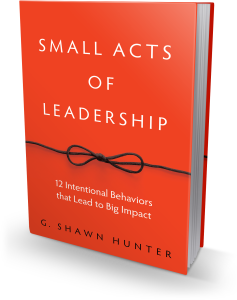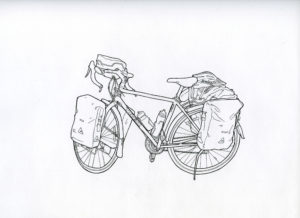Wanting to Be Someone Else Is a Waste of the Person You Are
We rode into the small town of Lincoln, New Hampshire and stopped at a small grocery. The owner came outside excited to look at our bicycles, adorned with panniers and travel bags from our ride across the United States. After 3000 miles we were lean, our bikes were well used and covered in stickers and personal touches. We looked the part.
We explained to the store owner we intended to camp and then head up and over the Kancamagus Pass in the morning. He furrowed his brow and nodded. “Good plan,” he said. “The Kanc is steep and long. Leave early and take your time. It will be work to get up over the pass.”
We woke early to attack the pass, and after about an hour and fifteen minutes of climbing we topped out at the peak, pulled over at a scenic rest stop and took some photos. My son Charlie (16) and I didn’t think it was much of a big deal at all. After seven weeks of cycling across the United States it didn’t seem a big climb.
That version of myself that was in better shape. If I rode up that mountain today it would be a much different story. Today, I’d wheeze and labor up the climb. It would take me twice as long. I’d probably stop to stretch and breathe. Instead of lamenting that I’m no longer in that physical shape, I should instead embrace who I am now.
“Wanting to be someone else is a waste of the person you are.”
–Kurt Cobain
Unlike our puppy Wally, who doesn’t appear to have any self-conscious thoughts, we humans have an ongoing relationship with ourselves – a constant inner dialogue about our sense of self-worth. It is, of course, why people pursue fame, fortune, and power, in the false belief that we will achieve satisfaction through adoration, money, or control over external forces.
What we really long for is to be understood, loved, and appreciated. Since this is true, we should afford the same thoughtful care to ourselves. Stanford Professor Christian Wheeler did a study which examined our idealized attitudes versus our actual attitudes and behaviors. In other words, he examined what happens when our more perfect version of ourself is in conflict with our actual behavior.
When our behavior is incongruent with our idealized attitudes, we feel worse about ourselves, and we often cheat our behavior to better match the version of ourselves we want to be. For example, if we idealize ourselves as fit and attractive and we aren’t currently, that tension makes us feel worse about ourselves. Which is why Spanx is a thing.
In another example, Wheeler asks us to imagine someone who wants to like their job, but their job actually makes them miserable. They may spend time convincing themselves the job is fun and meaningful, but if they cannot bridge the gap, the incongruency will only make them more despondent.
Meet yourself where you are. Self-compassion will fuel your personal change far better than beating yourself up. Just imagine what you would say to a dear friend in a difficult situation. Say those same things to yourself.
- ____________________________________________________

Twitter: @gshunter
Say hello: email@gshunter.com
Web: www.shawnhunter.com




